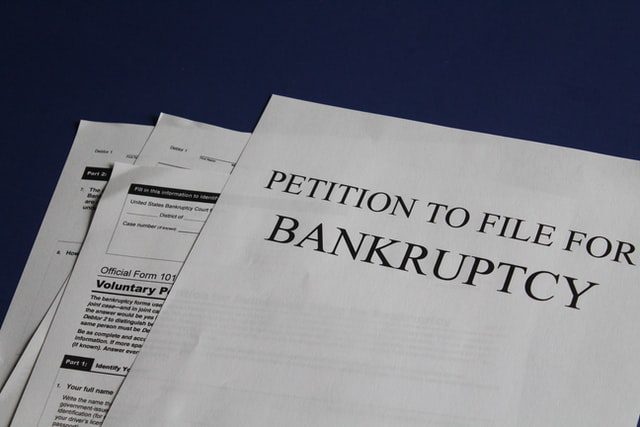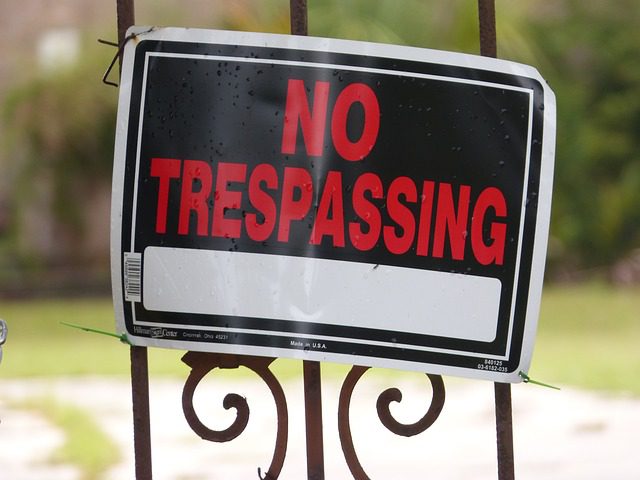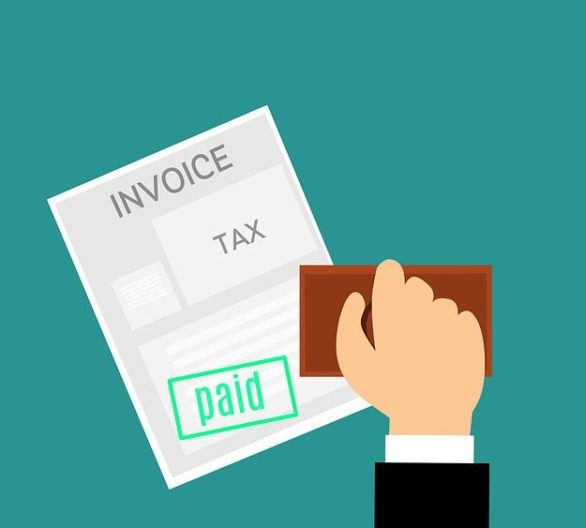In an ideal world, everyone would be financially stable with job security and perfect health, but in reality, we all face problems with our health and jobs, which can cause you to potentially lose your house.
Effects on your job and health can ultimately leave a homeowner unable to pay mortgages, property taxes, as well as day-to-day bills.
Being unable to pay these bills, is when a foreclosure can become active and if the house is not sold at an auction, it can become the property of your mortgage company.
All homeowners need to understand How to Stop A Foreclosure at the Last minute, and this article aims to provide a guide on how to do so.
Many individuals take out monthly payment loans from a lending company, when purchasing a house, as a lot of new homeowners do not have the entire amount to complete upfront payment.
But when choosing these payment methods, it is important to know what implications can arise if payments are missed.
This is when foreclosures become active. Simply put, a foreclosure is when a homeowner can not afford to pay their monthly mortgage fees, which can lead to their house being sold at auctions or becoming the legal property of the mortgage company.
Key Insight: Banks, financial institutions, and credit unions are some lending companies you can use to buy your home. When you attend your closing day for your home, you will sign an agreement stating you will pay the loan back over a set period.
Knowing when it is too late to stop a foreclosure is vital, but the rules and regulations may differ depending on which state or city you are based in.
However, there is one definitive rule that applies no matter which state you are in. Everyone will have up until the day of the auction to prevent the foreclosure process.
Once the home up for foreclosure has been auctioned, it's usually too late to prevent, but there are several avenues to explore if you are wondering How to Stop a Foreclosure at the Last Minute.

Depending on who your mortgage lender is the rules can differ between how many months you can miss payments without facing repercussions, but it can be around two to three months late
Key Fact: The Consumer Financial Protection Bureau states that 120 days late is the most common time frame for the foreclosure process to become effective.
Once a homeowner exceeds the threshold for late payments, a public notice called Notice of Default will be issued. A notice of default will state that you have failed to pay your mortgage and will seek for a payment to be made.
If the NOD is not effective a does not spark a payment, a direct warning will be given to the homeowner alerting them that the lenders are considering adopting the foreclosure procedure.
In some cases, a grace period is available for discussion. This is where a homeowner can arrange a repayment plan to cover their missed payments, and this stage is called pre-foreclosure. If your missed payments are cleared the foreclosure process will be terminated.
However, if the lender and borrower cannot negotiate a repayment plan the house will be put up for auction, or the house will become real-estate owned or bank-owned.
But as mentioned throughout this article stopping foreclosure at the last minute is possible.
There are numerous ways a homeowner can prevent or stop the foreclosure of their home, and it is important to remember the sooner you tackle the situation the better as you will be working to a tight schedule.
Hot Tip: If you leave it a week before the auction, you will be giving yourself less time to deal with the problem. Dealing with the issue as soon as you can is the fine line between losing your property and keeping your property.
As soon as you discover that you are at risk of facing foreclosure you should contact your mortgage lender to try and resolve the issue.
Although many people think their lenders will not want to speak with them this is not true at all.
Bear in Mind: It costs a lot of money for lenders to process a foreclosure on a home, so they would prefer to work one-to-one with you to come to an agreement.
A common option is to create a payment plan allowing you to pay your debts in installments; this helps to eliminate any formal processes.

If you are wondering how to stop a foreclosure at the last minute and want to know what options, you have you can always contact your state's housing agency.
A counselor will be able to guide you through the options available and may be able to protect you from foreclosure.
There are different ways that you can modify your loan to come up with a plan that works for both the lender and borrower.
One way you can modify your loan if your lender approves is to lower the monthly payments to make it more manageable. If the modifications to your new monthly payments are within your budget, you can remain on your property while continuing to meet your agreements.
Remember: Although your loan modification is being reviewed, it does not mean that your lenders
It is worth noting that lenders do not need to pause the foreclosure process while they are reviewing your loan modification request.
Another way to modify your loan is to add your missed loan payments to the total balance for you to pay at the end of your mortgage payments.
Typically, there are some criteria that you will have to fulfill before your loan can be remodified:
Loan modifications are common amongst lending companies, and it is one of the easiest ways to get you out of the foreclosure process.
Note: There may be some additional fees that come with the loan modification, and these will be added to your balance.
Whilst it may seem crazy to advise selling your home to avoid foreclosure, it's one of the quickest ways to earn some cash to cover your debts and should be considered when wondering how to stop a foreclosure at the last minute.
Essentially, your mortgage lender wants to be paid back the money you owe them, so if you can sell your house in its current condition, even if it needs some home improvements, and raise the money to cover your late payments then this may be a suitable option for you.
Do Not Forget: If you are subject to foreclosure and are unable to avoid it, it can have negative impacts on your credit rating- making it harder for you to receive a loan in the future.
If possible, you will want to find a buyer who can pay the cash upfront without having to seek guidance from a mortgage financing lender. You should also opt to sell your home as-is, so you do not need to worry about any repairs.
Similarly, to bankruptcy, filing for a deed in lieu will still negatively impact your credit rating.
A deed in lieu differs from the bankruptcy process and transfers ownership to your lender through a short sale process.
Typically, lenders will not opt for this option and are reluctant to make any agreements. Lenders are aware that some buyers try to sue and file a lawsuit after the deed in lieu has been processed and finalized. A buyer will claim they were not aware of the terms and conditions.
Just like bankruptcy, this option is not the best and is good as a last-minute attempt to stop foreclosure, after you have exhausted all other options.

The option of filing for bankruptcy should be your final resort. You must remember that the process of bankruptcy will not completely stop foreclosure, though it will slow it down it is considered to just buy you a little bit of time.
The foreclosure process will only be paused while your case is being reviewed. After the review is completed and summarized, foreclosure may continue, and you will be expected to cover any missed payments to continue your mortgage.
There are two different strands of bankruptcy, Chapter 7, and Chapter 13.
If you are filing for bankruptcy to buy some time, and do not plan to keep the house this is the best option. Chapter 7 bankruptcy will allow you to stay in your house without making any payments. During this time, ideally, you will have saved some money to either pay your dues or for a fresh start in a new home.
On the other hand, a chapter 13 bankruptcy is ideal if you plan to keep your home. You will discuss with your lender and come up with a structured repayment plan where you will clear your outstanding fees.
Key Takeaways: Filing for bankruptcy does not stop foreclosure, instead it pauses the process to give you time to figure out how you will pay your overdue fees. Remember unlike selling your home, filing for bankruptcy will negatively impact your credit rating.
Being subjected to a foreclosure is a tough and draining process, and while it's unfortunate many people go through this.
However, remember when you are considering how to stop a foreclosure at the last minute, there are many options to help you out.
If you are unsure of your options, or which is most suitable for you, you can always contact your local state housing agency and speak to a counselor for some extra support and guidance.
If foreclosure is hanging over you, you can try to modify your loan, or even sell your house as well as some other options to ease the pressure.
Most importantly, you should take the time to understand how the foreclosure process works and determine how long you have to prevent foreclosure and what date your auction falls on.
It costs a lot of money for lenders to process a foreclosure on a home, so they would prefer to work one-to-one with you to come to an agreement, so do not leave it until the last minute, reach out and speak to your lender as soon as you notice you are struggling to make a payment.
A squatter is defined as an individual or person who settles on or lodges on a property without permission that they do not own.
The squatter begins to occupy or live on the property to which they do not have any legal claims, no titles, no rights, or a lease.
A property owner can lose the title of their house to another person if they do not check up on or inspect their property for several years.
This opens the window for another person- a squatter- to put forward a claim to possess the land and use the ground and is more commonly known as squatter's rights.
Squatter right's vary from state to state, for example New Yorks legislations differ to those in Alabama. Making sure you understand your states individual rules is highly important.
This article will explore and answer the question, What Is a Squatter? How Do You Get Rid of Them?
Someone who intrudes on a property that they do not personally own and lives there without permission from the homeowner is referred to as a squatter. These individuals do not have a lease, are not renting the property as tenants, so they have no legal entity to be on the property.
Usually, squatting occurs when a property has been unattended or unoccupied for an extended period and is notably unmonitored by the homeowner.
Key Fact: Did you know that homeowners can be sued as well? View our blog post on crazy stories where homeowners get sued across the US.
The squatter will be aware that nobody is on the property, and they will then break in and start to live in the property.
However, it's essential to understand that squatter can develop what is known as squatter's rights, and a landlord or property owner will have to follow legal procedures to remove the person from their property.
Key Insight: Squatters who have studied and understand the laws which they possess, can take full advantage of their rights and push owners into time-consuming and expensive legal proceedings.
Before you can answer the question, What Is a Squatter? How Do You Get Rid of Them, it is important to understand the difference between a trespasser and a squatter?
Deemed to be a criminal offense and if someone is found trespassing on land or private property, it can result in the arrest of the alleged trespasser. Legally, a trespasser will cause damage to your property in order to get inside, by breaking a door or smashing a window, etc.
The term squatting generally refers to a civil matter as opposed to a criminal offense. This is because a squatter will enter the property through an unlocked door or window that is already been broken. Although a squatter can be arrested and eventually removed from the property, they have begun to occupy without alerting the owner of the property.

As mentioned above, a squatter is simply someone who possesses and occupies someone's property without having permission or without them legally owning the home. If a squatter resides in the property for a set amount of time, they may attain squatter's rights.
Every U.S state, and on some occasions cities, operate using different laws concerning squatter's rights and adverse possessions and depending on where you are situated can alter when a person obtains their rights.
Furthermore, the requirements needed to be met to be granted adverse possession can vary. Usually in most states letter showing you have paid taxes on the given property and a deed, must be put forward for a claim to be considered or to be successful.
Remember: Before a person/s stays long enough to be legally classed as a squatter, they are trespassing on the property and can be removed by law.
For example, in California a squatter must have proof that they have paid property taxes for five or more years to obtain squatter's right, however, in Ohio a squatter needs to be living on the property for 21 years to receive adverse possession.
Although this does not happen regularly, if a squatter resides on a property for several years such as a home in Ohio for over 21 years and they acquire adverse possession, the squatter could legally become the owner of the place.
As previously mentioned, adverse possession or more commonly known as squatter's rights is not a criminal offense but is actually a legal situation. Generally, this occurs when an individual/s is given the legal title of another person/s home by gaining possession.
However, it's important to know that this can happen either intentionally or unintentionally or with or without the property knowing.
Intentional adverse possession happens when a squatter or trespasser occupies or lives on someone else land illegally. The individual enters the owner's land intending to live there and to eventually possess the property.
In different situations, squatter's rights can be obtained unintentionally. For instance, if a homeowner is building a fence to mark off their yard from their neighbors' yard, but in doing so they cross over onto their neighbors' property line, the neighbor or adverse possessor can now claim the property.
Key Insight: If the filed claim is successful and the homeowner is granted adverse possessions they will not be required to pay for the property.
Squatter's rights, legally referred to as adverse possession, is the term used when an individual obtains ownership of a property even though they have not paid for the property.
However, there are a few criterions that need to be met before you gain adverse possessions or squatter's rights, and they are as follows:
Assuming that all of the above takes place, this is when adverse possession or squatters right becomes active.

Once a squatter enters and occupies your property, it's important to act immediately as each day that passes allows the squatter to gain a legal title to own your property.
All states squatting laws allow original property owners to evict squatters following the process set out below. However, it is important to know that there is a given period where a property owner must initiate the eviction process by producing an eviction notice. This time period is often called the statutory period.
Do not Forget: Landlords are advised to deal with squatter issues as soon as they have been discovered, the more time that passes the harder it becomes to remove the squatter.
Once you discover someone is on your property without consent, you should notify the police immediately.
If your case ends up with an eviction lawsuit, your calls to the police will be recorded so the police can present them to the court showing that you openly tried to work with local police to remove the squatter
Hot Tip: Once the police have been alerted, do not cut your electrics, turn off utilities, or change the locks until the entire removal or eviction is completed.
Commonly referred to as an unlawful detainer, an eviction notice is a starting step in an eviction process. While you can write out a notice yourself to give to the squatter, it's advised that a real estate eviction attorney is hired to produce a professional and formal eviction notice.
If the squatter does not leave the property after you produced a formal eviction letter, then you should move to the next step and file a lawsuit.
Most states will have specified real estate attorneys who are professionally trained in residential evictions.
Once you have completed the eviction process and the judge approves of your claim, local law enforcement teams such as the police will attend your property to legally evict or remove the squatter from your property.
Some states will ask the landlord or homeowner to write a notice before removing the squatters person possessions if he/she left any behind.
Hot Tip: If you cannot find the squatter, you should ask the court to post a public notice on the premises for the squatter to get any leftover possessions.
Though there are several organizations to help a homeowner to remove a squatter from your property, it is a complex case to handle. Therefore, it is a lot easier for homeowners to implement certain steps to give their properties full protection.
As simple as it may seem, putting up no trespassing signs can help to deter squatters and prevent adverse possession.
Whether your property is vacant or if someone is living there, the owner of the land should always secure the perimeter. Securing your property's perimeter with sounding alarms, fences with locks, and lights will help to avoid any lengthy and hostile claims where squatters are claiming they have legal possession over your properties.

With the ever-growing advancements in technology, installing security cameras and alarms that connect your smartphone can allow you to track and monitor your property. This will allow you to act immediately if you notice squatters on your property.
As mentioned, the big difference between trespassing and squatting is that squatters do not break a window to enter a property, if another person has broken the window and the squatter enters, they will not have committed a criminal offense. That is why securing your windows and doors is vital, the higher the level of security, the less likely anyone will be able to get inside.
Try to attend your property a few times a week or get a family member or friend to visit your property. This will allow you to notice if anyone is squatting on your property, or to notice any damage such as smashed windows so you can prevent any unwanted guests.
A squatter is defined as an individual or person who settles on or lodges on a property without permission that they do not own. However, if a squatter has been living on a piece of land for a set amount of time they can obtain squatter's rights- more formally known as adverse possessions.
Answering the question What is a Squatter? How Do You Get Rid of Them, means there are aspects an individual needs to understand before filing any claims or contacting law enforcement. For example, understanding the difference between a trespasser and a squatter is vital.
Typically, a trespasser will intentionally break into a property by smashing a window or breaking down a door and therefore commits a criminal offense. In contrast, a squatter will enter the property through a window that is already broken and insecure which sparks a legal case.
Landlords or property owners need to be cautious and alert to unwanted guests on their properties. Installing security cameras or alarms to properties that can be synced to your phone can allow you to monitor your home from a distance.
If landlord or property owner notices, there are squatters on their properties all laws, legislations, and eviction processes must be complied with accurately.
If you don't pay property tax, the government can place a tax lien on your property or even foreclose on it. The property may sometimes be sold at auction to cover the unpaid taxes.
You might have even heard rumors of people having their houses sold or being sent to jail. The truth is that your county will send you a delinquency notice letting you know how much you owe in taxes and penalties and give you a deadline to pay.
This article will provide a complete guide full of definitions, ways to make payments, and the advantages of timely payments vs. the disadvantages of untimely payments.
Good to know: Every year, we pay a huge amount of property tax to the state government. The process of buying property is a lot tougher than it used to be ten years ago.
Property tax is a term used to describe taxes paid on property owned by an individual or other legal entity, such as a corporation.
The property's value determines the amount of the tax, which is typically expressed as a percentage of the property's assessed value.
Property tax is an intangible tax. The property owner is responsible for paying the property tax to their respective jurisdiction, along with the associated fees to file an annual declaration of ownership and pay the property taxes.
Sometimes referred to as real estate tax, it is one of the most common taxes collected by local governments.
Property tax is based on the value of land or another real estate an individual owns and its marketability.
The purpose of property tax is to provide revenue for service delivery by the government and provide incentives for owners to maintain, improve, and use their properties efficiently.
The different types of payment modes of property tax or land tax vary from one country to another, and in most cases, it depends on the valuation of the property as to how often you will be required to pay taxes.
The property tax is usually payable every six months at a minimum, and once a year, it may be paid every quarter.
You can pay property tax by online mode as well as offline mode.
So, let's learn about the steps to follow for online payment of Property Tax:
Step 1 - Firstly, Go to the Online Gateway of the Municipal Corporation of your state.
Step 2 - Select the department location where you are based
Step 3 - At the bottom right of the page, click on the Online Services option
Step 4 - Now, on the property tax, select the option of online return of property tax return
Step 5 - Read the Terms and Conditions thoroughly, then click on the file that says file property option
Step 6 - Fill in the blanks with your appropriate Property ID
Step 7 - After filling it out properly, you will be redirected to the page where your Property Tax is automatically calculated based on your input information.
Step 8 - Now, choose the payment option of your Choice of Cash/ Cheque/ Direct Debit.
Step 9 - Your Property Tax payment is finished.
Step 10 - You can also take its printout by clicking on the Challan Button
Property Tax can also be paid offline in your specific zone. You can get all the detailed information of your zone offline property tax payment via the Municipal Corporation Portal.
Extra Information - Contacting your county government will help increase the chance of receiving an extension and getting a break on fines and charges you may receive.

What happens if you don't pay property tax? Will you go to jail? Will your house or apartment get foreclosed? What about a lien on your house?
We will explore the answers to all those questions next.
The tax authority will hold a tax sale to pay the back taxes owed on the home. Although this can happen with as little as $500 of taxes owed, local taxing authorities have the option of holding tax sales for as much as ten years worth of unpaid property taxes.
A tax lien sale is one of the consequences of not paying certain taxes (for example, property and real estate taxes). Still, it typically isn't the first step that a local government takes to collect those unpaid taxes from a property owner.
However, if an owner receives enough of these tax liens, this might prompt a county tax office to sell the liens in a tax sale.
A tax deed sale occurs when a lender forecloses on the property taxes for a property.
The property will go to tax sale or become delinquent on its taxes, the homeowner will have failed to pay property taxes, and the property is auctioned off for a price that is less than what is owed in delinquent taxes.
A tax deed sale is one of several ways a property can be sold after owed back property taxes.
The property will be sold to the highest bidder at a tax deed sale. This means that the typical steps of purchasing a home do not apply during a tax deed sale. There are no appraisals and no need to have your loan pre-approved for financing.
The bidding process is straightforward: you pay the bid amount to the county clerk, pay the back taxes in full, provide proof of funds, sign an affidavit, and get your deed transferred by the state land registry office. You then own the home outright with no debt and no monthly payments.
A tax lien certificate sale allows a purchaser to get favorable rates on the taxes owed along with penalties and interest and is generally more attractive than other types of investing in that it offers a greater return.
Tax lien certificate sales are much less common than tax foreclosure auctions. The Internal Revenue Service or IRS, cities, countries, and states rarely sell tax liens on the open auction block.
Key Fact: Although your property may have a federal tax lien imposed, did you know it is still possible to sell your house with an active lien?
Why do they sell them instead of foreclosing to collect the money owed? The answer is typically related to the fact that it takes time and money to foreclose when it's not sure that you'll get the money, so selling them can be a lot easier.
Tax lien certificate sales can be a great opportunity for investors looking for a unique investment to generate income. However, several important facts about tax lien certificate sales must be considered before investing.
Things to keep in mind: Rates and taxes on property vary across the states, and it is important to understand how you can save. There are usually benefits in capital gains, debt relief, and installment payments. Do in-depth research on property tax for any real estate property or land.

Do you have vacant land and wonder what will happen if you don't pay your property tax? You're not alone.
Many property owners in the U.S. are liable for paying property taxes on vacant land, even if they don't live in that state or country.
If you own land that is not being used for business or investment, you need to pay property tax on it. If there is a building on the land, an appraiser will assess the land and the value of the building. The assessed value will be determined by your city or country appraiser.
Most of the time, homes sit vacant for at least some amount time. This allows owners to save money on property taxes on their primary residence.
Every state in the US has a version of property tax, and each state's laws differ slightly. But to put it simply, property tax is what you pay to the government for owning property. Vacant land is a property, and that means it is taxable.
There are similar consequences when you don't pay your property tax for Vacant Land compared to non-payment of property tax for your real estate property.
Tip: Aim to pay property tax on time to avoid any consequences set above, but if you face difficulties, get in contact with the appropriate people.

Property taxes for the house you own is an uninteresting and unjustified expense, but that's a fact of life, and it's just got to be paid.
If you pay property tax to your municipality, there are benefits. In general, everyone should know what happens if you don't pay your property tax and what advantages and disadvantages they have.
Paying property taxes is one of the best ways to raise revenue for any government. That's because they impose a fixed obligation on all property owners so everyone must pay.
Another important advantage of property taxes is that they allow the state to get additional tax income. They allow states and localities to raise money for other things such as infrastructure projects and social welfare programs.
In recent years, this wealth gap and the situation have been pointed out by various organizations worldwide as one of the major problems of all developing countries, which are sometimes even responsible for the collapse of entire economies.
Many investors are not paying property tax for obvious reasons, i.e., they can gain higher returns by investing their money elsewhere.
Also, because this tax type is not collected by government bodies and is collected by municipalities, the temptation to skip a payment is ever-growing.
It might look like an appealing idea to you, but in the long run, it's not worth it. You should consider some disadvantages before deciding not to pay your property tax, and the ramifications can cause you to lose your property.
Interest charges are one of the big implications of figuring out what happens if you don't pay property tax.
Missing payments for your property tax will increase your bill due to interest charges; it won't just be forgotten about.
Normally, there is a grace period after the set due date, before additional charges come into effect. However, after the grace period, be aware that interests rates may be a lot higher than usual.
If a third party buys the lien to your property, your redemption period becomes active. The redemption period is usually two to three years. In that time, you'll be given a final chance to pay your back taxes, including interest and redemption fees.
Hopefully, if you can make your payments, the investor renounces any claims on your property. However, if no payment is made throughout the period, the lienholder receives the title deed to your proper, which you must forfeit.
Remember: If you face financial hardships and struggle to pay your property taxes, you might be able to reduce your bill or be granted extra time to pay. Just seek the right guidance as soon as you can.
This article aims to fully answer the starting question, What Happens If You Don't Pay Property Tax?
The guide aims to explain the types of methods you can use to pay your taxes, like online and offline modes, as well as picking apart the problems you can face if property taxes are neglected.
Paying your property taxes can have huge benefits to your local county. For example, the money gained from taxes can be used for welfare programs and given to the health sector.
Even if your property is vacant, you still must pay your property taxes because it's still a property that belongs to the government.
Most importantly, remember, speaking about your problems is the best thing you can do! Ignoring any issues won't make property tax payments disappear.